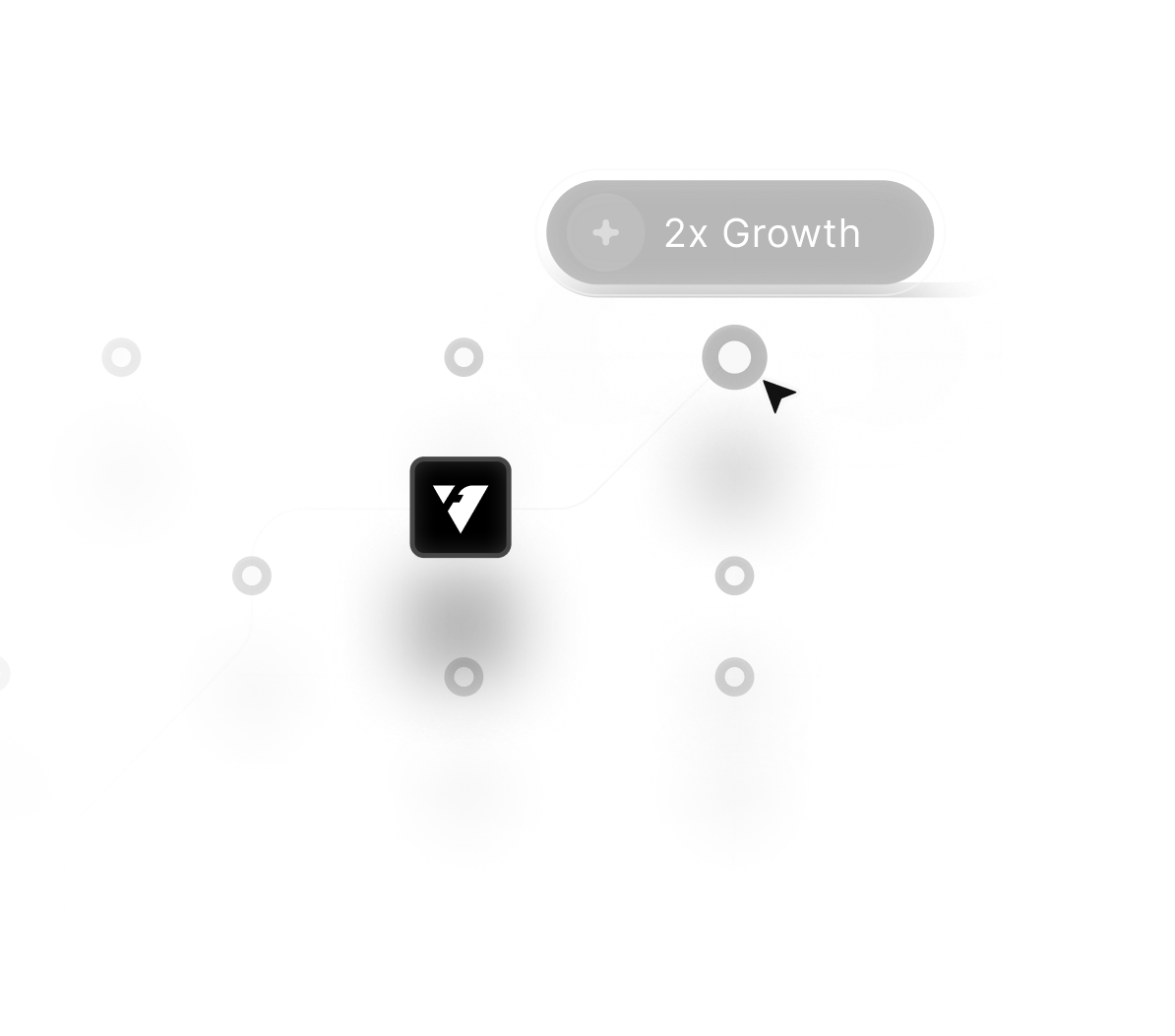January 2, 2026
WP Engine Trouble? Migrate to Webflow Effortlessly in 2026

Are you tired of dealing with persistent issues on WP Engine and looking for a fresh start with a modern, user-friendly platform?
In 2026, migrating to Webflow has become the go-to solution for individuals and businesses seeking better performance, seamless design flexibility, and enhanced website management.
With Webflow's powerful features and intuitive interface, transitioning your website is easier than ever. This blog will guide you through the process of making the switch effortlessly while highlighting the benefits of embracing Webflow for your web development needs.
If your website has been hosted with WP Engine, you may have already encountered troubling news: WP Engine is now banned from WordPress.org. This ban is a significant issue for the over 1.5 million websites hosted on the platform, many of which are at risk.
The ban means no more core WordPress updates or theme and plugin updates, creating a growing security nightmare for site owners.
WP Engine is one of the largest hosting options for WordPress sites, and the largest CMS in the world. The Brief? In short, WP Engine got some big no-nos from WordPress owners, and now sites hosted on WP Engine are cut off from all future updates, risking security and scalability.
With these disruptions, it’s more crucial than ever to migrate to a more stable, secure platform - like Webflow.
Webflow not only provides a more secure solution, but it also allows for a smooth, seamless migration process. Are there concerns about losing SEO value during the transition? Don’t worry—we’ve got you covered.
This guide will walk you through the migration process from WP Engine to Webflow, ensuring you don’t lose your hard-earned SEO rankings or web performance. For a step-by-step walkthrough, check out this detailed blog post on how to migrate from WordPress to Webflow by VictorFlow. It provides valuable insights and actionable tips to make your migration smooth and effective.
"Start experiencing design freedom without plugin headaches.
Grab your free done-for-you migration appointment."
Table of Contents
- Overview of WP Engine’s Current Issues
- 1.1 The WP Engine Ban
- 1.2 1.5 Million Websites at Risk
- Why Migrate to Webflow?
- 2.1 The Benefits of Webflow
- 2.2 Key Features That Make Webflow Stand Out
- Pre-planning For a Successful Migration
- 3.1 How to Prepare for Your Website Migration
- 3.2 Ensuring Your SEO Value Remains Intact
- 3.2 Redesign vs. Straightforward Migration
- Step-by-Step Guide to Migrating from WP Engine to Webflow
- 4.1 Backing Up Your Existing Website
- 4.2 Hire a Webflow Expert
- 4.3 Choosing the Right Webflow Plan
- 4.4 Mapping Your Sitemap
- 4.5 Static vs. Dynamic Pages in Webflow
- Performance and SEO Considerations
- 5.1 Webflow's Performance Optimization
- 5.2 Maintaining Your SEO Rankings
- 5.3 Key SEO Elements to Consider (Meta Tags, Open Graph)
- Testing and Final Launch
- 6.1 Performing Final Site Testing
- 6.2 Migrating Analytics, Google Search Console, and Meta Pixels
1. Overview of WP Engine’s Current Issues

1.1 The WP Engine Ban
In September 2024, WP Engine was banned from WordPress.org due to platform security and stability concerns.
This has led to significant consequences for the 1.5 million websites hosted on the platform, as WordPress will no longer provide important updates essential to keeping sites running smoothly and securely.
1.2 (1.5 Million Websites at Risk)
With over 1.5 million websites affected by this ban, site owners now face the risk of security vulnerabilities, plugin conflicts, and outdated themes.
This can lead to potential data breaches and a poor user experience, putting both the reputation and functionality of your website in Danger.
In light of this, it’s time to consider Webflow as an alternative—a platform that ensures security and reliable performance.
2. Why Migrate to Webflow?

2.1 The Benefits of Webflow
Webflow provides a modern, secure, and scalable website-building platform that offers peace of mind—especially for those struggling with WordPress-related issues.
It is a no-code solution that comes with powerful built-in features for design, hosting, and SEO, allowing you to focus on creating a high-quality website without worrying about constant updates, maintenance, or security threats.
2.2 Key Features That Make Webflow Stand Out
- Responsive Design: Webflow automatically adjusts your website’s layout to fit any device, ensuring your site is mobile-friendly and responsive across all screen sizes.
- Built-in SEO Tools: Webflow provides powerful SEO tools that allow you to customize meta titles, descriptions, and more. You can also use tools like OpenGraph to analyze your meta titles, descriptions, and social media performance, helping optimize your website for better search engine visibility and engagement.
- Hosting and Security: Webflow’s robust hosting ensures fast load times and strong security protocols, including SSL encryption, keeping your website secure from potential threats.
3. Pre-planning For a Successful Migration

3.1 How to Prepare for Your Website Migration
Preparation is key to a successful migration. Begin by backing up all your website data, including media files, pages, and configurations.
Then, create a detailed checklist of essential features that need to be retained, such as SEO settings, site structure, and performance benchmarks. By preparing in advance, you’ll ensure a smoother transition to Webflow.
3.2 Ensuring Your SEO Value Remains Intact
One of the biggest concerns when migrating is the potential loss of SEO rankings. However, with proper planning, you can maintain your SEO value.
It’s important to transfer your existing URLs, meta tags, and structured data to your new Webflow site.
Keeping these elements intact will prevent a drop in search rankings during the transition.
3.3 Redesign vs. Straightforward Migration
When migrating from WP Engine to Webflow, you have the option to either migrate your existing site as-is or take the opportunity to redesign certain aspects of your website.
- Straightforward Migration: Ideal for websites that only require a platform shift without significant visual or structural changes.
- Redesign with UI/UX Enhancements: This is a great chance to make small improvements, such as updating outdated design elements, optimizing layouts for better usability, or enhancing performance with Webflow's modern tools.
Carefully consider your website goals and whether a redesign would benefit your brand and user experience during this transition.
4. Step-by-Step Guide to Migrating from WP Engine to Webflow

4.1 Backing Up Your Existing Website
Before making any changes, it’s crucial to back up everything from your WordPress site.
This includes your database, media files, themes, plugins, and any custom code.
You can use WP Engine’s backup tools or third-party plugins to create a full backup, ensuring no data is lost during the migration process.
4.2 Hire a Webflow Expert
Hiring a Webflow expert ensures a seamless and efficient website launch with minimal effort on your part.
One-Time Hire: You can engage an expert to design and develop your website, after which you can easily manage and update it yourself without needing ongoing help.
Less Hassle Than WordPress: Unlike WordPress, Webflow doesn’t require regular plugins, themes, or core updates. This significantly reduces the time and effort spent on maintenance, giving you a more streamlined, worry-free platform.
Focus on Your Business: With Webflow’s stable and secure platform, you no longer need to worry about technical upkeep. This allows you to concentrate on growing and running your business while your website stays reliable and fast.
For professional help in getting started, visit Webflow Experts.
4.3 Choosing the Right Webflow Plan
Webflow offers a variety of plans to suit different website needs.
For most businesses, the Webflow CMS plan provides all the essential features, including CMS capabilities, SSL encryption, and faster load times. Be sure to select the plan that aligns with your website’s requirements.
4.4 Mapping Your Sitemap
The next important step is transferring your website’s sitemap.
Export your current sitemap.xml file from WordPress and import it into Webflow to ensure that all your pages are correctly indexed by search engines.
This will help retain your SEO rankings by maintaining a clear URL structure.
4.5 Static vs. Dynamic Pages in Webflow
Webflow supports both static and dynamic pages, but there are key differences in how they function.
Static pages are fixed and only change when manually updated, while dynamic pages are connected to Webflow’s CMS, which automatically pulls content.
If your WordPress site features a blog or any other custom post types, plan to replicate this in Webflow CMS to ensure consistency.
5. Performance and SEO Considerations

5.1 Webflow’s Performance Optimization
Webflow is renowned for its performance optimization, offering fast load times, automatic image compression, and built-in SEO tools. This helps search engines index your site quickly—Google loves fast websites!
These features are crucial for preserving your website’s speed and functionality during and after the migration process.
5.2 Maintaining Your SEO Rankings
To preserve your SEO rankings during the migration, make sure your URL structure remains consistent and implement 301 redirects where necessary.
Additionally, optimize your meta descriptions and titles using Webflow’s SEO tools to ensure that your website is properly indexed and ranked by search engines.
5.3 Key SEO Elements to Consider (Meta Tags, Open Graph)
Webflow makes it easy to manage SEO-critical elements like meta titles, descriptions, and Open Graph tags.
These elements help improve your search engine rankings and social media visibility.
After migrating your site, double-check these settings to ensure they’re correctly implemented.
6. Testing and Final Launch

6.1 Performing Final Site Testing
Before going live with your new Webflow site, thoroughly test it to ensure everything is working smoothly.
Check for broken links, test all forms, and verify that images and videos load properly. Additionally, ensure your site’s responsiveness on mobile devices is perfect.
6.2 Migrating Analytics, Google Search Console, and Meta Pixels
Once your site is live, don’t forget to migrate your tracking tools. Set up Google Analytics, Google Search Console, and any relevant meta pixels to monitor your site’s performance and user behavior.
This ensures that you can continue analyzing your site’s metrics and make informed decisions moving forward.
Conclusion
In the fast-paced digital world of 2026, a smooth-running website is non-negotiable. If WP Engine troubles are holding you back, migrating to Webflow is the perfect opportunity to revamp your online presence.
Webflow's dynamic features, superior hosting, and design capabilities make it a standout choice for businesses and creators alike. Take control of your website's future today - make the switch to Webflow and experience a platform built for growth, reliability, and creativity.
Migrating from WP Engine to Webflow is a smart move for businesses seeking a reliable, user-friendly platform with integrated hosting and a powerful CMS. With Webflow, you can streamline your website’s performance while ensuring scalability and security.
VictorFlow, a Webflow premium partner, is here to help you assess if Webflow is the right choice for your business. As experts in Webflow development, we provide tailored solutions to make your transition seamless and efficient. To explore how we can support your migration, schedule a consultation with us today at VictorFlow Scheduling.
Visit our website at VictorFlow to learn more about our services and how we can elevate your web experience. Trust the agency that understands the intricacies of Webflow to ensure your site is optimized for success.

FAQ
1. WP Engine migrating to Webflow affect my SEO rankings?
If done correctly, migrating to Webflow will not affect your SEO rankings. By mapping your sitemap, implementing 301 redirects, and retaining your meta tags, your SEO value can be preserved.
2. How do I migrate my WordPress site to Webflow?
To migrate your site, back up your data, choose the right Webflow plan, map your sitemap, build a website on Webflow using Webflow experts, and test your site before going live.
3. What’s the difference between static and dynamic pages in Webflow?
Static pages are fixed, requiring manual updates (Examples like: Homepage, About Us, Contact, etc.), while dynamic pages (Examples: Blog posts, Products, Portfolio...etc) pull content from the CMS. If your WordPress site uses dynamic content, plan to replicate this functionality in Webflow.
4. Is Webflow secure?
Yes, Webflow offers strong security features, including SSL encryption, regular backups, and automatic updates, to ensure your site remains protected.
5. Can I migrate my SEO tools (like Google Analytics) to Webflow?
Yes, you can migrate your SEO tools to Webflow. Make sure Google Analytics, Google Search Console, Meta Pixels, and any others are properly set up to continue tracking your site’s performance.
6. How long does a full migration usually take?
Most sites migrate within a few days to a few weeks depending on site size, number of CMS items, and custom functionalities required.
Table of Contents
Choose Our Service, Grow Fast!
Follow Us
Related Posts

February 27, 2026
Create outstanding streaming websites in 2026 using 10+ premium Framer templates, crafted for speed, responsive performance, and high-quality content engagement.
Create outstanding streaming websites in 2026 using 10+ premium Framer templates, crafted for speed, responsive performance, and high-quality content engagement.


Plan a high-converting pricing page for your SaaS app. Discover best practices, successful SaaS pricing pages & examples. Boost conversion now!
Plan a high-converting pricing page for your SaaS app. Discover best practices, successful SaaS pricing pages & examples. Boost conversion now!


February 25, 2026
Routine Webflow maintenance strengthens site reliability through clean updates, optimized performance, and structured improvements that support growth throughout 2026 and beyond.
Routine Webflow maintenance strengthens site reliability through clean updates, optimized performance, and structured improvements that support growth throughout 2026 and beyond.

Ready to Scale Your Project to the Next Level?
Let's take your project to new heights, reach out and see how we can help you.




















